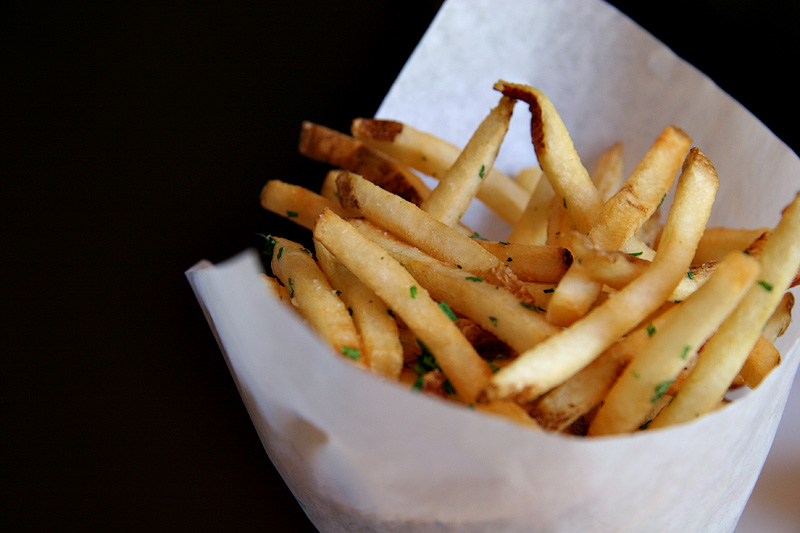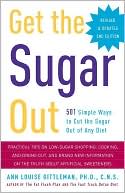
McDonald's French Fries:
"Potatoes, vegetable oil (partially hydrogenated soybean oil, natural beef flavor (wheat and milk derivatives)**, citric acid (preservative), dextrose, sodium acid pyrophosphate (maintain color), dimethylpolysiloxane (antifoaming agent)), salt. Prepared in vegetable oil ((may contain one of the following: Canola oil, corn oil, soybean oil, hydrogenated soybean oil, partially hydrogenated soybean oil, partially hydrogenated corn oil with TBHQ and citric acid added to preserve freshness), dimethylpolysiloxane added as an antifoaming agent). **CONTAINS: WHEAT AND MILK (Natural beef flavor contains hydrolyzed wheat and hydrolyzed milk as starting ingredients.)"
http://www.mcdonalds.com/app_controller.nutrition.categories.ingredients.index.html
Wendy's French Fries:
"Potatoes, Vegetable Oil (contains one or more of the following: soy, canola, cottonseed, partially hydrogenated soy and/or cottonseed), Disodium Dihydrogen Pyrophosphate (color protector), Sodium Acid Pyrophosphate, Dextrose. Cooked in Vegetable Oil. Note: may be cooked in the same oil as Fish Fillets and French Toast Sticks (where available), Crispy Chicken Nuggets, Crispy Chicken Patty. Seasoned with Salt."
http://www.wendys.com/food/Nutrition.jsp
Burger King French Fries:
Potatoes, Partially Hydrogenated Soybean Oil, Modified Potato Starch, Rice Flour, Potato Dextrin, Salt, Leavening (Disodium Dihydrogen Pyrophosphate, Sodium Bicarbonate), Dextrose, Xanthan Gum, Sodium Acid Pyrophosphate added to preserve natural color.
http://www.bk.com/#menu=3,3,-1
Carl's Jr. French Fries:
Potatoes, partially hydrogenated soybean oil, disodium dihydrogen pyrophosphate (to promote
color retention), dextrose.
http://www.carlsjr.com/nutrition/
Dairy Queen
I could not actually find an ingredients list for their french fries. They list nutritional facts, but not ingredients. However, I read something on their main web page that I think is especially funny, "The dietitians at International Dairy Queen, Inc. are registered with the American Dietetic Association. They are available to answer your questions regarding any of DQ's delicious products." I didn't know that fast food restaurants had dietitians!
http://www.dairyqueen.com/us-en/eats-and-treats/
By definition, a dietitian is, "According to the US Department of Labor, Dictionary of Occupational Titles, one who applies the principles of nutrition to the feeding of individuals and groups; plans menus and special diets; supervises the preparation and serving of meals; instructs in the principles of nutrition as applied to selection of foods." I always thought a dietitian meant someone who promoted the healthiest food options. Boy, was I wrong!


